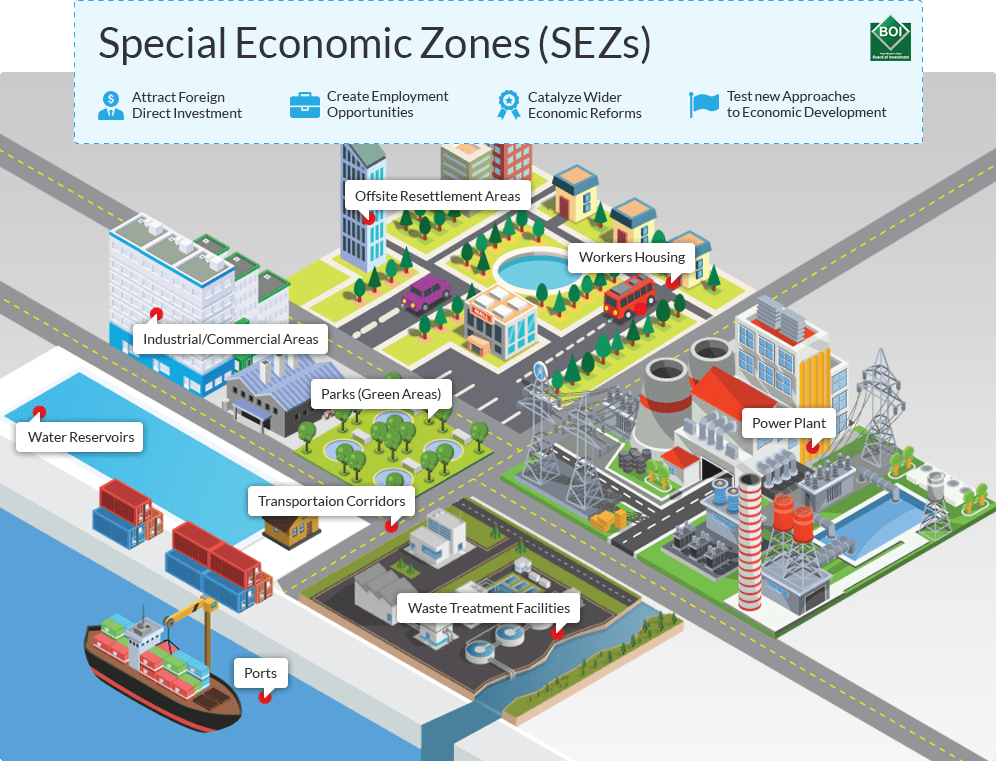In a meeting with the Pakistan-China Joint Chamber of Commerce and Industry (PCJCCI) on Monday, the chairman of the Special Economic Zones Authority (SEZA) Punjab, S.M. Naveed, urged for a united effort to increase connectivity and commerce with regional countries.
During a visit to PCJCCI, Naveed stated that the SEZA was providing business companies with investment-friendly policy packages. “We should work together to improve connectivity and trade in the region,” he said, adding that Chinese firms were concerned about soya bean cultivation in Pakistan.
The amount of trade will increase dramatically as a result of the CPEC (China–Pakistan Economic Corridor) industrial zone openings. Naveed disclosed that there were approximately ten operational zones in Punjab, including M3 Industrial City, Allama Iqbal Industrial City, Rahim Yar Khan Industrial Estate, Bhalwal Industrial Estate, JW China Pakistan, Vehari Industrial Estate, and others.
He noted that Punjab’s SEZs were a centre for important industrial sectors including as textiles, agriculture, food processing, cars, and services. According to the SEZ official, Pakistan has committed to supply gas, water, power, and other services to manufacturers in industrial parks.
Moazzam Ali Ghurki, president of the PCJCCI, stated that SEZs promote economic linkage between resource-starved states and resource-rich regions. This type of regional integration strengthens peace, encourages serenity, and secures economic development for the entire region.
Pakistan, according to the senior vice president of the PCJCCI, Fang Yulong, offers a large market for investments in energy, automobiles, textiles, surgical equipment, infrastructure, engineering, agriculture, minerals, and small and medium-sized enterprises. In addition, renewable energy sources such as solar, wind, thermal, and biogas are a priority for the country.
“Pakistan welcomes Chinese investment in all industries to take benefit of its progressive and liberal investment policies.” He stated that the SEZs will be immune from customs charges and taxes for ten years on all capital items imported into the country for development, operation, and maintenance. Hamza Khalid, vice president of the PCJCCI, encouraged the government to provide full support to the zone developers in order for them to flourish and reach their desired objectives. “Pakistan is examining the experiences of other nations, which have adopted arbitration norms from the West, and is planning to imitate China’s experience with cluster development,” he said.
